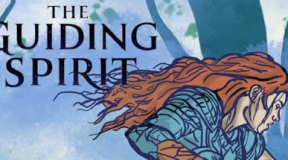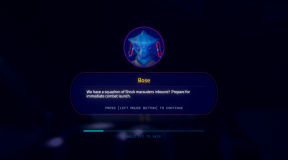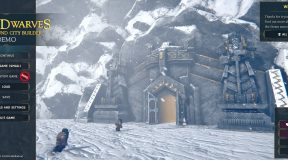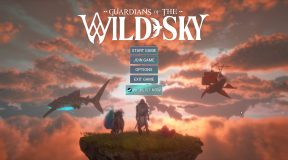I really like Steam’s Next Fest, in part because it offers a massive amount of free games in the form of demos, but also because it’s an opportunity to side-step the hype machine and put actual hands on titles I might not have heard about before. As always, I’m documenting my experiences, but also as always, don’t take my word for it: go forth and download!
Bloomtown: A Different Story
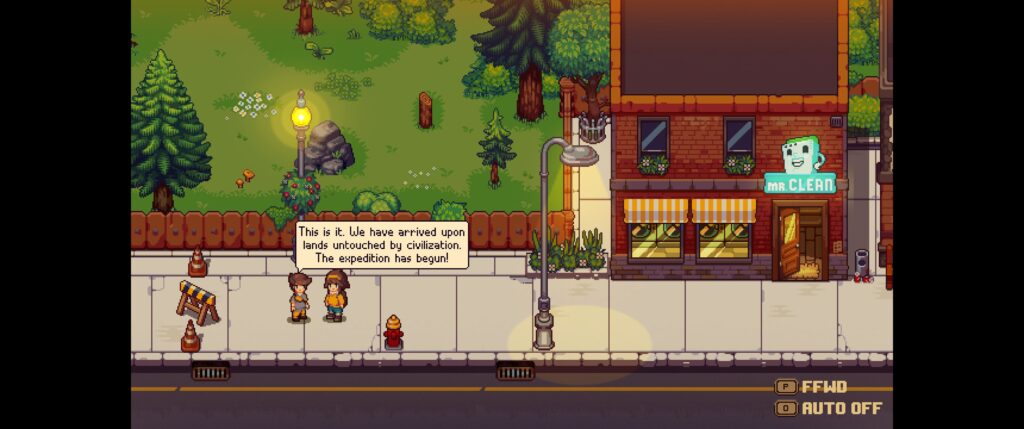
I have had this one on my wish list for some time, thinking that it had looked like a common farming sim with a narrative twist, but after playing the demo, I’m not sure that “farming sim” is the appropriate designation. We play as Emily who, along with her brother Charlie, are sent to the rundown town of Bloomtown to live with their grandfather Cooper for the summer. It’s insinuated that the kids home life isn’t the greatest, and this move benefits their mother more than it does either of them; based on what’s happening in the town, we might agree with that assessment in the end.
Yes, there’s some light farming as Emily tends to her grandfather’s small garden behind the house, but that takes a back-seat to the constant motion around town as Emily and crew investigate the weird goings-on initially centered on the whereabouts of a young girl. A young brother and sister, sent to a relative wilderness to live with an older relative while Stranger Things start happening around them? If this game were less serious than it is, I’d say we’d be looking at a Gravity Falls spin-off.
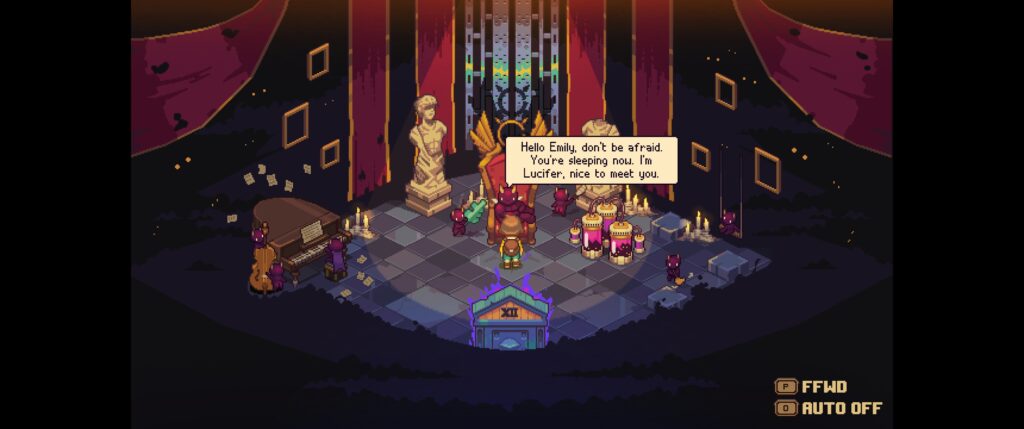
I want to talk about the game but I also don’t want to spoil it because a lot of the charm (if we can call it that) comes from the weird yet somehow appropriately framed reveals of the initial steps that Emily takes into the Unknown. There is gardening, but there’s also combat and party dynamics. Unlike other somewhat similar games, Bloomtown doesn’t have a lot of random NPC interactions and, because we’re talking about kids here, there’s no “romance” options for townsfolk.
REKA
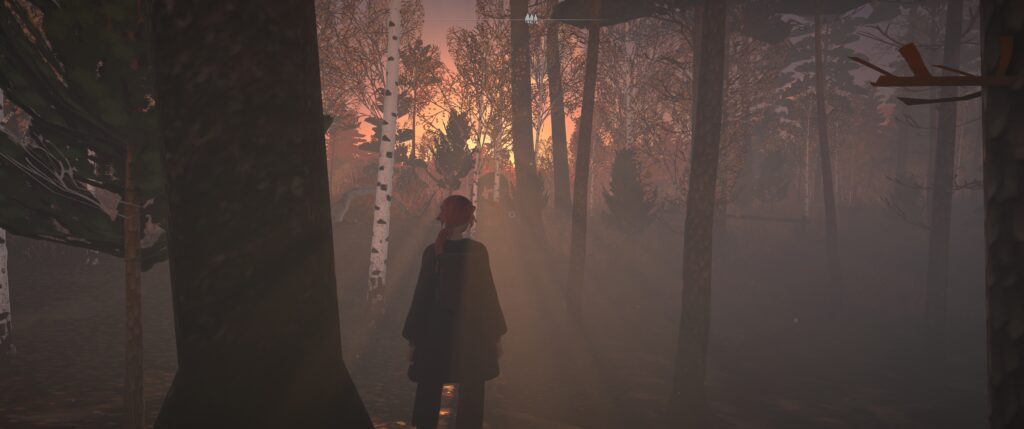
If you’re a fan of slow-boiling, atmospheric games, and if you like building games, REKA might be for you, but I had a real hard time getting into this one, so then again it might not be for you, either.
From what I gather, you play as a young woman who is either sent to, or travels on her own volition, to what I’m going to assume is a small Eastern European village to study under a…well, to put it simply…a witch. This isn’t a cutesy narrative, though, as the Witch in question is quite aggressive and “witchy”, I guess, in the traditionally mythological way, threatening to eat the protagonist if she screws up the simple gathering tasks she’s given.
There is not a lot of guidance in the early game, which makes things very hard to grasp. After character creation, I walked down a path and helped an ox-cart driver repair his cart, and examined the small demon he had trapped in a glass bulb before continuing on and walking through a very depressing outpost where a handful of NPCs chatted about their very depressing situations. Everyone had Opinions about the old woman who lived in the woods, though, and advised me to stay away from her.
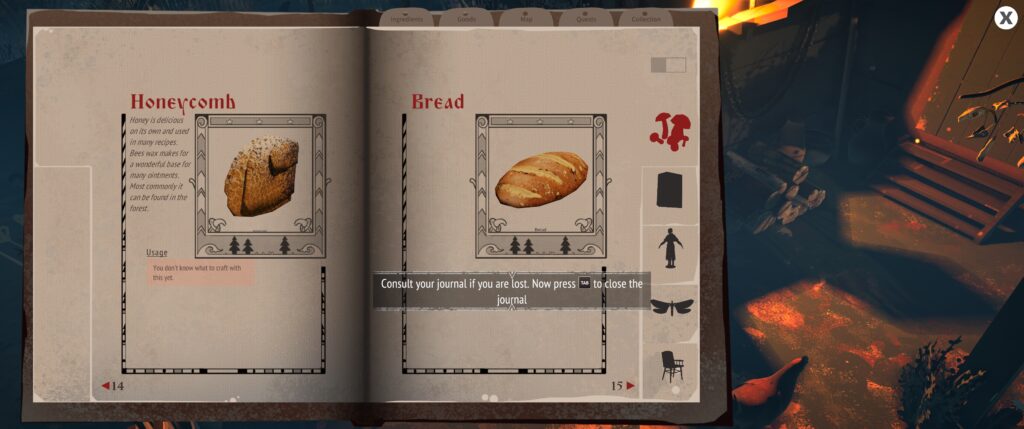
The gathering tasks I was given were to collect honey and mushrooms for soup, but aside from being shown how to access my journal, I was given no indication on how to find these items. I walked around a bit but saw no indication of anything interact-able in the landscape. The crows that were assigned to help did no such thing. This confusion, coupled with the stylized Old World setting, wasn’t doing it for me, so this was as far as I could get.
Aloft
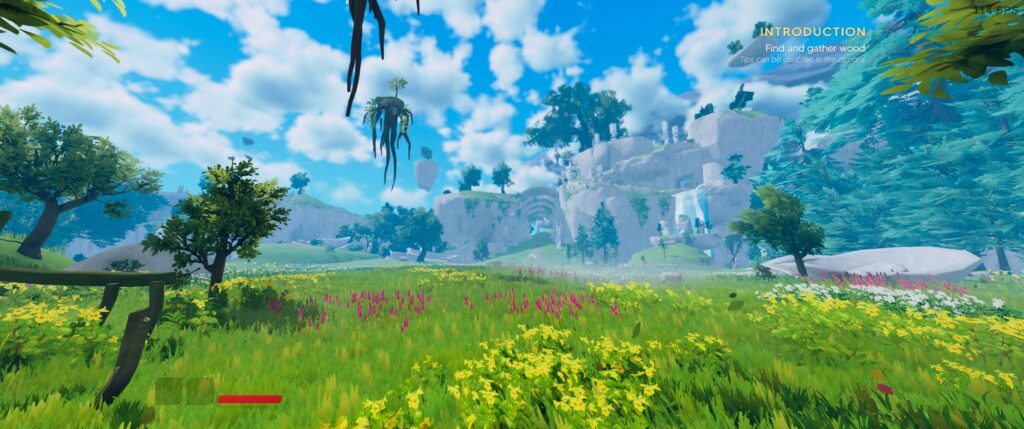
I was attracted to this demo by the colorful visuals that I think we can agree have come to be known as “Breath of the Wild-esque”, and also the promise of gliding through clouds. The former was sated, but I didn’t even last long enough in the game to even consider the latter.
Aloft seems to be a survivalbox game set in a world of floating islands. I made a character and, as the genre dictates, work up in a cave. This cave was filled with the wreckage of all kinds of crates and boats, oddly enough. Odder still, I was told that my first task was to collect some wood. Well, I was in a cave full of wood; could I use that? No. Upon leaving the cave, I found trees, so could I punch the trees to get wood? Also no. Instead, I had to jump around until I found a somewhat hidden chest that contained wood.
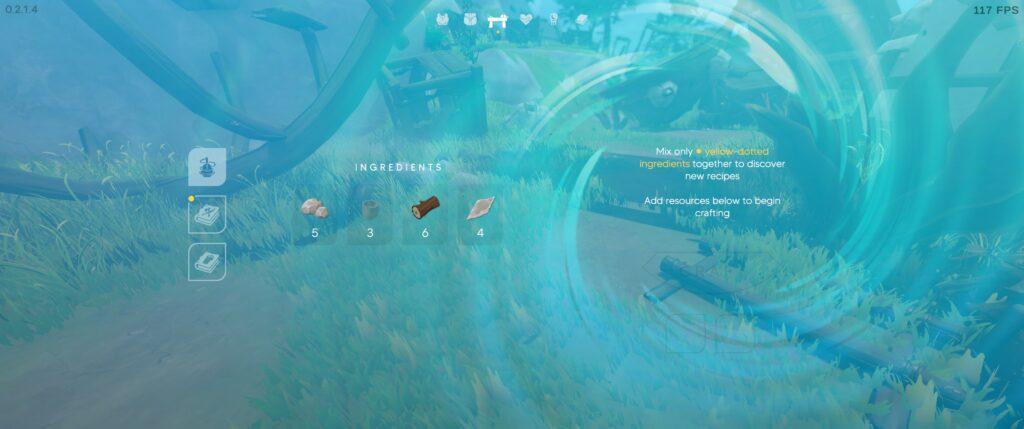
Then I was told to make a pick-axe, but not how to make a pick-axe. The journal offers an experiment system which allowed me to combine materials to “see what they make”. Throwing together the wood and some stones made a hammer, for example, and wood and a sharpened stone made an axe…but not a pick-axe. After these two combos, I was out of materials I could use to experiment with so I had no idea what to do at that point, so I uninstalled.
Fantastic Haven
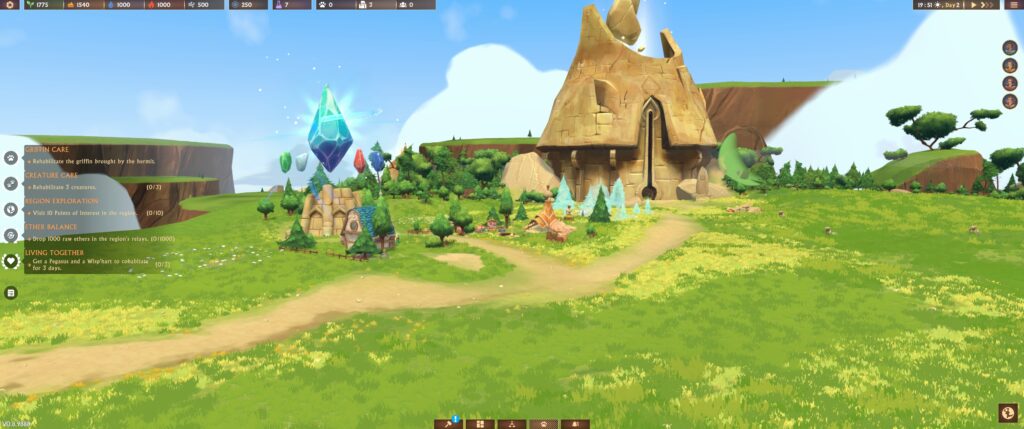
After one home-run and two duds, I was hoping to even the odds with the last demo, Fantastic Haven, and boy howdy, I was not disappointed.
Like Bloomtown, what I thought I was getting and what I got were two different things. I thought this demo would be a little like Palworld-lite; what it turned out to be was a city builder where all of the pops are mages, and rather than urban sprawl being the ultimate goal, the purpose here was to explore the world map, find endangered mystical creatures, and rehabilitate them in your town before reintroducing them to the world. Hell yes! I don’t think those words have ever been used in that combo ever in the history of video games, so we’re already off to a good start.
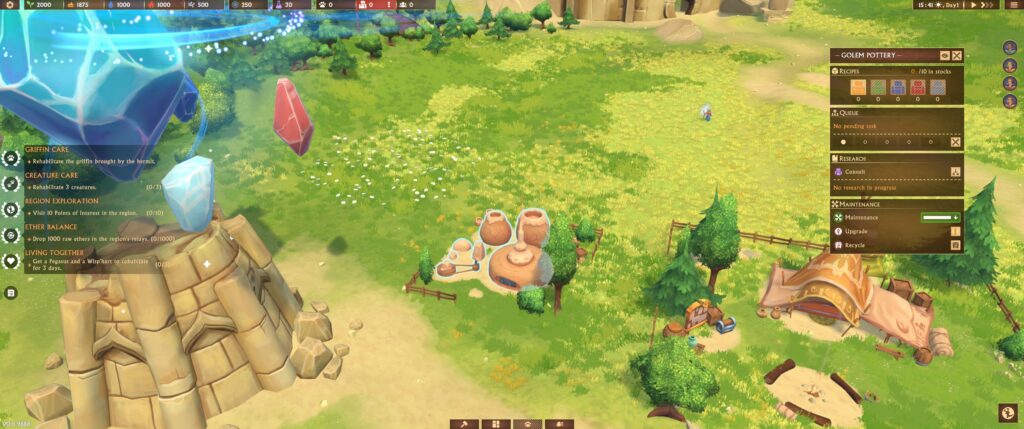
The act of building isn’t new: I selected buildings from a list of known blueprints and, assuming I had the resources, could have my mages set them up. Early on I built a Golem manufacture (a Pottery Barn, basically) which allowed me to pump out workers who would continue the construction. From there, things stumbled a bit as the demo offered no guidance about how to progress. I built a research facility and figured out how to unlock new blueprints, but it was only through unfettered experimentation that I found my first project via the world map, a sick Pegasus.
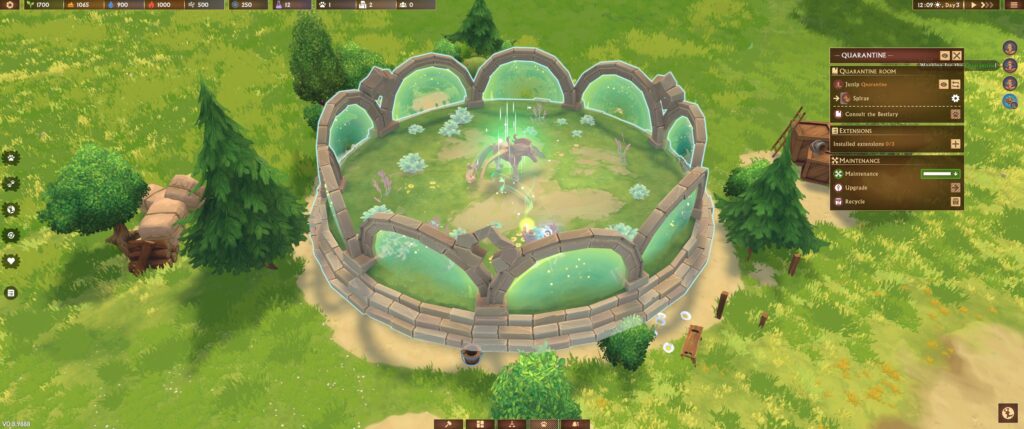
Caring for animals requires that they be shipped to the town. Once there, they need to be quarantined to prep them for their stay. Animals need to be transferred to a biome that caters to their unique needs. This involves adjusting the biome (a buildable zone) for things like food offered, water amounts, aesthetics, and size. As I added amenities to the biome, sliders would move on the info panel with the goal being to get them into an indicated sweet spot that would please the creature. Then, I assume, it would be a matter of keeping on top of the creature’s needs until such time as they were ready to move on to the next stage.
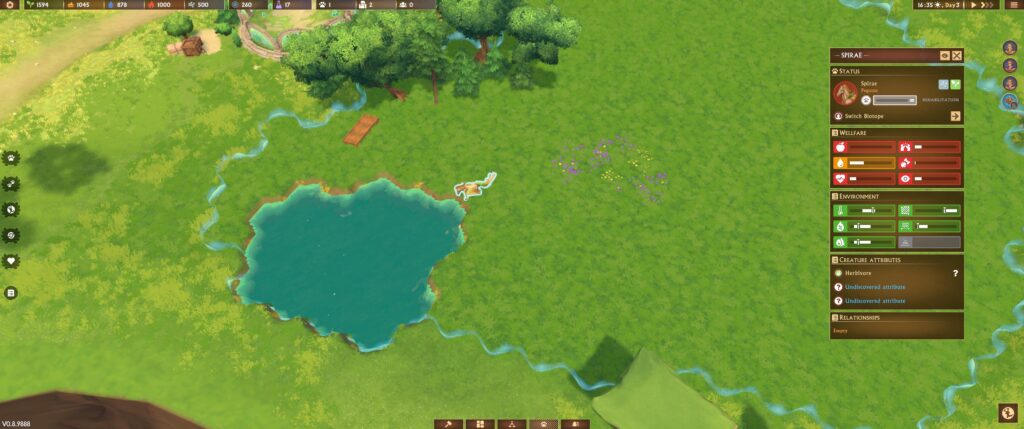
Unfortunately, the lack of guidance kept me from continuing on. Its one thing to have my hands held, mobile game style, with every click, but it’s another to feel like I’m fruitlessly clicking everything I can except the things I actually need to click. Fantastic Haven is going on the wish list, though, as this one-part city-builder, one-part zoo tycoon game has all of hallmarks of a truly excellent title once it bakes a little longer.

